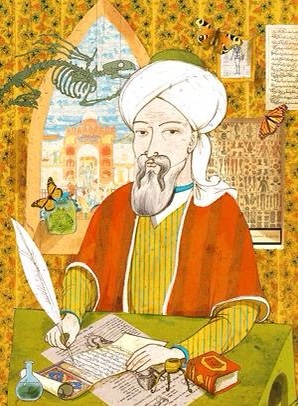How the closing of the mind continues to harm the Muslim world.
The beginnings of Islam were extraordinary. Its rise even more so. Perhaps, with no parallel in the human history. In 732 CE, its expansionist troops came close to making the entire Europe Muslim. Edward Gibbons had famously stated: “Had the battle of Poitiers been won by the Caliph, and not the Franks, the interpretations of Quran would now be taught in the schools of Oxford and her pulpit might demonstrate to a circumcised people the sanctity and truth of the revelation of Muhammad.”
If I was a data analyst and I drew a graph of the Islamic civilization since its beginnings in ragged Hijaz, there is an upward steep climb till about 13th century. That was the zenith. The downfall began since and it’s been going on. Everything to that count is cause and effect.
Ali Shariati, the Iranian revolutionary and one of the most influential intellectuals of the 20th Century in a very rudimentary fashion explained Islam and sharia: unchanging rules for the unchanging needs, changing rules for the changing needs.
In the 8th Century, a group called the Mutazilites argued for free will over fatalism and quoted Quranic verses showing God’s displeasure at an inactive mind. According to one such verse, the worst of creatures for Allah are deaf and dumb, those who won’t reason. Some of the most daring thinkers in the Islamic world argued that paths of divinity should be mapped by reason and experience. It is in this age that we see the rise of Ibn Sina (Avicenna), Ibn Rushd (Averroes) and Ibn Arbi.
Ibn Sina – captivating, peripatetic – set down a famous ‘proof’ of the existence of God’, which travelled into Europe where it survived until Enlightenment.
Convinced of the existence of God, he, however, exempted himself from some pettier restrictions. He observed five daily prayers not because it was the will of God but because it improved his concentration. The golden age of Islamic civilization was well on its sail. The age created a culture that managed the polar truth of what is called God’s last miracle.
Fundamentally, what Mutazilites preached is that all human achievements were glory to God, but the discernment and innovation that went into them were owned by man. To think of it, the dome transported from Romans to mature Islamic civilization. The Arabs of those times did not reject it because it was Christian. Rather, like a civilization sure of its moorings, it accepted changes.
The persecution of Mutazalites started from the 9th Century, however, their legacy endured. They encouraged speculation and even their opponents were forced to recognize Kalam – the discussion of religion on the basis of rational criteria. In the 19th and 20th Centuries, Islam’s reformers would often be accused of Mutazalism.
There was never one single reason for the decline of Islamic civilization, though, theologically one could argue. There were external threats to Muslim creativity. The crusaders, the Mongol invasion were interpreted as God’s displeasure. And in the desire to win back God’s favor, rationalism paid the price. The single biggest reason for the morass Muslim world finds itself in is being antithetical to the modern progress of science and political liberty.
In the hindsight, this tiny event in the journey of the Islamic theology made all the difference. When Ibn Taymiyyah became the primary jurist of the age, he slapped down reason in all its forms – even as means of examining Islamic teaching. The goal of the believer was not to know God but to obey him, he argued. With regard to man’s capacities and free will, Taymiyyah’s views were very pessimistic.
Islam followed Christianity, falling victim to superstition that had beset much of medieval Europe. It reached abysmal levels. In 1580, the only scientific observatory remaining in the world of Islam at Galata in Istanbul was razed on the grounds that it encouraged astrology and had angered God into sending the plague and pestilence.
Education was limited to memorizing Quran. The argument was that Quran gave everything that was needed for this life and the hereafter. That education offered little or nothing in the way of history, geography or science. Surgery was performed by barbers. In this insular, insecure world, curiosity was non-existent. The argument in banning printing press was that it would make Quran accessible to everyone and only enable ignorant to misinterpret it. Printing was even made a capital crime. The takfiri Ashar’i formulation was deep rooted in Islam now.
The rise of western philosophy and its political liberty was bound to throw a response from the Muslim world. It led to the rise of Muslim brotherhood in Egypt. Hasan al-Bana and Sayyid Qutb set to implement the Shariah of God – freeing people from servitude to other men to bring them into the service of God.
A similar reformist movement was started by Maulana Maududi in the sub-continent. What was supposed to be the catalyst of Islamic resurgence, unfortunately ensured that the dark clouds of ignorance and naïve superiority complex continued to plague the Muslim world.
To that effect the recent developments in the Arab world must be weighed carefully. There is a clear positioning in the Arab world that tilts towards west. Is that because of economics only? Not really! The Arab world is recalibrating its relationship and how Islam fits into the modern world. It is a very progressive stance, keeping man’s evolutionary history in mind, of bridging gaps through partnerships and knowledge-sharing. Like any student of Islamic history, the dream of the House of Wisdom returning to Basra and Baghdad.
Faheem Gundroo is an ICT engineer based in Dubai, with interest in travel, history and current affairs.
